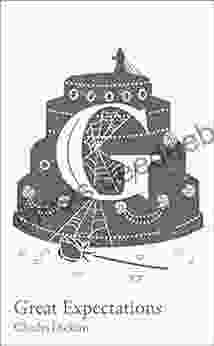Anthropology: Unveiling the Intricate Tapestry of Human Culture and History

Anthropology, derived from the Greek words "anthropos" (human) and "logos" (study),is a comprehensive field of study that delves into the full spectrum of human societies, cultures, and histories. Anthropologists strive to understand the diverse ways in which humans have adapted to their environments, developed social structures, and created cultural practices. Through meticulous observation, participant engagement, and in-depth analysis, anthropology provides invaluable insights into the human condition, shedding light on our origins, evolution, and place in the natural world.
5 out of 5
| Language | : | English |
| File size | : | 1999 KB |
| Text-to-Speech | : | Enabled |
| Screen Reader | : | Supported |
| Enhanced typesetting | : | Enabled |
| Word Wise | : | Enabled |
| Print length | : | 327 pages |
The Holistic Approach of Anthropology
Unlike other disciplines that focus on specific aspects of human existence, anthropology adopts a holistic approach, encompassing the entirety of human experience. Anthropologists examine not only the physical characteristics and biological evolution of humans but also their social, cultural, linguistic, and cognitive dimensions. By integrating these various perspectives, anthropology provides a comprehensive understanding of human societies, past and present.
The Four Subfields of Anthropology
- Biological Anthropology: Examines human evolution, genetics, primatology, and the biological basis of human behavior.
- Cultural Anthropology: Studies the cultural practices, beliefs, values, and social structures of different societies.
- Archaeology: Uncovers the material remains of past human societies through excavation, analysis, and interpretation.
- Linguistic Anthropology: Investigates the structure, meaning, and use of human language across cultures.
Key Concepts in Anthropology
Anthropology revolves around several fundamental concepts that underpin its investigations into human societies and cultures. These concepts include:
- Culture: The learned and shared beliefs, values, practices, and material objects that shape human behavior within a society.
- Society: A group of people who live together in an organized and interdependent manner, sharing a common culture.
- Ethnicity: A shared sense of identity and belonging based on common descent, culture, or history.
- Race: A social construct that classifies people into distinct groups based on perceived physical characteristics.
- Gender: A social and cultural concept that defines the roles, behaviors, and expectations associated with being male or female.
The History of Anthropology
The roots of anthropology can be traced back to the Enlightenment era, when European scholars began to explore and document the diverse cultures of the world. However, it was not until the 19th century that anthropology emerged as a distinct discipline with its own methodologies and theories.
Foundational Figures in Anthropology
- Franz Boas: Known as the "Father of American Anthropology," Boas emphasized cultural relativism and the importance of studying cultures on their own terms.
- Bronislaw Malinowski: A pioneer in participant observation, Malinowski conducted extensive fieldwork in the Trobriand Islands, providing detailed accounts of their social and economic life.
- Margaret Mead: An influential anthropologist who studied gender roles and socialization in different cultures, challenging prevailing notions about the universality of human behavior.
Key Moments in Anthropology
- 1871: Establishment of the Royal Anthropological Institute of Great Britain and Ireland
- 1880s: Boas conducts field studies among Native American tribes
- 1910s-1920s: Malinowski's groundbreaking fieldwork in the Trobriand Islands
- 1930s-1940s: Margaret Mead's research on gender and socialization
- 1950s-1960s: Decolonization and the rise of anthropological studies in former colonies
Anthropology in the 21st Century
Contemporary anthropology continues to evolve, addressing new challenges and incorporating innovative research methods. Current trends and areas of focus include:
- Global Health and Disease: Anthropologists investigate the social, cultural, and environmental factors that influence health and disease patterns.
- Environmental Anthropology: Examines the interactions between human societies and their environments, addressing issues of sustainability and climate change.
- Urban Anthropology: Focuses on the social and cultural dynamics of urban life.
- Digital Anthropology: Explores the impact of digital technologies on human communication, social relations, and cultural practices.
The Importance of Anthropology
Anthropology plays a vital role in our understanding of ourselves as human beings. Through its comprehensive approach and in-depth research, anthropology provides valuable insights into:
- The diversity of human cultures and societies
- The origins and evolution of human civilization
- The relationship between humans and their environments
- The challenges and opportunities facing humanity in the 21st century
By fostering cultural awareness, breaking down stereotypes, and promoting tolerance, anthropology contributes to a more just and equitable world.
Studying Anthropology
For those interested in pursuing a career in anthropology, there are numerous opportunities for study and research. Undergraduate and graduate programs in anthropology are offered at universities and colleges around the world, providing students with a solid foundation in the discipline's core concepts and methodologies.
Anthropologists work in a variety of settings, including academia, museums, government agencies, and non-profit organizations. They may conduct research, teach courses, or work as consultants on issues related to culture, society, and the environment.
Anthropology is a boundless field of inquiry
5 out of 5
| Language | : | English |
| File size | : | 1999 KB |
| Text-to-Speech | : | Enabled |
| Screen Reader | : | Supported |
| Enhanced typesetting | : | Enabled |
| Word Wise | : | Enabled |
| Print length | : | 327 pages |
Do you want to contribute by writing guest posts on this blog?
Please contact us and send us a resume of previous articles that you have written.
 Page
Page Chapter
Chapter Text
Text Reader
Reader E-book
E-book Magazine
Magazine Newspaper
Newspaper Paragraph
Paragraph Sentence
Sentence Shelf
Shelf Foreword
Foreword Preface
Preface Synopsis
Synopsis Footnote
Footnote Scroll
Scroll Codex
Codex Tome
Tome Bestseller
Bestseller Classics
Classics Library card
Library card Narrative
Narrative Autobiography
Autobiography Memoir
Memoir Reference
Reference Thesaurus
Thesaurus Narrator
Narrator Resolution
Resolution Librarian
Librarian Card Catalog
Card Catalog Borrowing
Borrowing Stacks
Stacks Study
Study Research
Research Lending
Lending Reserve
Reserve Rare Books
Rare Books Thesis
Thesis Dissertation
Dissertation Book Club
Book Club Textbooks
Textbooks R G Richardson
R G Richardson Ferniko
Ferniko Imbolo Mbue
Imbolo Mbue Team At 10adventures
Team At 10adventures Mahavishnu Huntington Majors
Mahavishnu Huntington Majors Michael Fitterling
Michael Fitterling Barbara Rose Johnston
Barbara Rose Johnston David Bromwich
David Bromwich Douglas Lorain
Douglas Lorain Walter Burt
Walter Burt Ross Jacobs
Ross Jacobs Sherril Dodds
Sherril Dodds Herbert Jones
Herbert Jones Linda Greenhouse
Linda Greenhouse Ashraf Badawi
Ashraf Badawi J A Pardo
J A Pardo Shonda Brown White
Shonda Brown White Hana Meihan Davis
Hana Meihan Davis Gary Goodridge
Gary Goodridge Jennifer Dussling
Jennifer Dussling
Light bulbAdvertise smarter! Our strategic ad space ensures maximum exposure. Reserve your spot today!

 Geoffrey BlairNeurosurgical Operative Atlas Spine and Peripheral Nerves: A Comprehensive...
Geoffrey BlairNeurosurgical Operative Atlas Spine and Peripheral Nerves: A Comprehensive... Garrett PowellFollow ·14.3k
Garrett PowellFollow ·14.3k Corey GreenFollow ·8.6k
Corey GreenFollow ·8.6k Jay SimmonsFollow ·11.1k
Jay SimmonsFollow ·11.1k Jon ReedFollow ·14.7k
Jon ReedFollow ·14.7k Henry HayesFollow ·6k
Henry HayesFollow ·6k Alex FosterFollow ·17.1k
Alex FosterFollow ·17.1k Ryan FosterFollow ·18.7k
Ryan FosterFollow ·18.7k Yasushi InoueFollow ·18.4k
Yasushi InoueFollow ·18.4k

 Russell Mitchell
Russell MitchellGCSE Set Text Student Edition: Collins Classroom Classics...
The GCSE Set Text Student Edition: Collins...

 Ralph Turner
Ralph TurnerSix Sigma Lean Green Belt Training for Beginners with...
What is Six...

 Travis Foster
Travis Foster10 Life-Changing Lessons I Learned When I Was Single
Being single can...

 Jermaine Powell
Jermaine PowellOne Great Insight Is Worth a Thousand Good Ideas
In the competitive and...
5 out of 5
| Language | : | English |
| File size | : | 1999 KB |
| Text-to-Speech | : | Enabled |
| Screen Reader | : | Supported |
| Enhanced typesetting | : | Enabled |
| Word Wise | : | Enabled |
| Print length | : | 327 pages |














